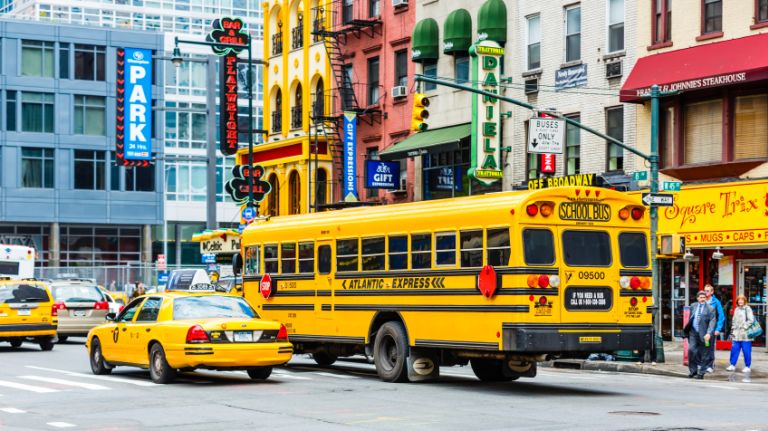
A crucial effort to rein in runaway school busing costs hit a dead end last week when Mayor Bill de Blasio and the City Council agreed to supplement the pay of 3,000 private bus workers with $42 million in public money. We’re all getting taken for a ride.
Here are the problems: Even if salaries are too low, this isn’t a smart fix. The supplement could paint the city into a corner when it comes to negotiating with other private contractors and other labor unions. The Amalgamated Transit Union won a nice coup last week. The city has now agreed to give its drivers and matrons a one-time pop averaging $14,000. And it can negotiate a new contract next year. But what happens when everyone wants a similar favor?
The scheme raises legal questions. It boosts the pay of privately employed workers in a settled contract. Yet the state constitution prohibits the city from giving money to a private firm without a broad public purpose. The mayor and council say the supplement is warranted to ensure that buses are run by experienced personnel. But does that argument override the interest of taxpayers in making sure the city pays workers at market rates?
The city has a duty to fight ballooning costs. Mayor Edward Koch took a strike in 1979 as he tried to trim busing expenses. Mayor Michael Bloomberg took a strike in 2013 in a similar scrap. Busing by then was costing the city an incredible $1.1 billion a year. Bloomberg’s goal was to set up a system of competitive bidding for the right to provide service on the city’s 1,100 school bus routes.
He ultimately won, and some expenses dropped.
Before Bloomberg acted, the city was paying $7,000 a year for each pupil bused — way out of scale with the rate elsewhere. Los Angeles was paying an average of $3,200.
After the Bloomberg victory, average annual pay for bus workers fell from the mid-$30,000s to the mid-$20,000s.
The distress of drivers and matrons is understandable.
But city salaries should be linked to the marketplace — and the city should negotiate on behalf of its taxpayers first. Unfortunately, that didn’t happen this time.



































